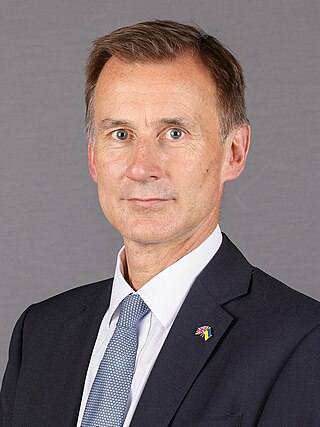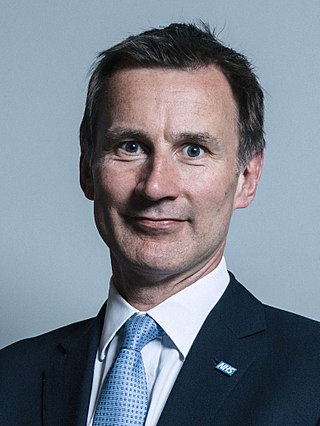The British Medical Association (BMA) is a registered trade union for doctors in the United Kingdom. The association does not regulate or certify doctors, a responsibility which lies with the General Medical Council. The association's headquarters are in Tavistock Square, London and it has national offices in Cardiff, Belfast, and Edinburgh, a European office in Brussels and a number of offices in English regions. The BMA has a range of representative and scientific committees and is recognised by National Health Service (NHS) employers alongside the Hospital Consultants and Specialists Association as one of two national contract negotiators for doctors.

HCSA - the hospital doctors' union is a nationally recognised professional association and trade union in the UK dedicated solely to hospital consultants, specialty doctors and core/specialty hospital doctors in training and Foundation grades, originally established in 1948 as the Regional Hospital Consultants and Specialists Association.
In the United Kingdom, junior doctors are qualified medical practitioners working whilst engaged in postgraduate training. The period of being a junior doctor starts when they qualify as a medical practitioner following graduation with a Bachelor of Medicine, Bachelor of Surgery degree and start the UK Foundation Programme, it culminates in a post as a consultant, a general practitioner (GP), or some other non-training post, such as a specialty doctor or associate specialist post.

Jeremy Richard Streynsham Hunt is a British politician serving as Chancellor of the Exchequer since 2022. He previously served in the Cabinet as Secretary of State for Culture, Olympics, Media and Sport from 2010 to 2012, Secretary of State for Health and Social Care from 2012 to 2018 and Foreign Secretary from 2018 to 2019. A member of the Conservative Party, he has been Member of Parliament (MP) for South West Surrey since 2005.
Professor Sir Bruce Edward Keogh, KBE, FMedSci, FRCS, FRCP is a Rhodesian-born British surgeon who specialises in cardiac surgery. He was medical director of the National Health Service in England from 2007 and national medical director of the NHS Commissioning Board from 2013 until his retirement early in 2018. He is chair of Birmingham Women's and Children's NHS Foundation Trust.

The National Health Service (NHS) is the publicly funded healthcare system in England, and one of the four National Health Service systems in the United Kingdom. It is the second largest single-payer healthcare system in the world after the Brazilian Sistema Único de Saúde. Primarily funded by the government from general taxation, and overseen by the Department of Health and Social Care, the NHS provides healthcare to all legal English residents and residents from other regions of the UK, with most services free at the point of use for most people. The NHS also conducts research through the National Institute for Health and Care Research (NIHR).

Daniel Leonard James Poulter is a British Conservative Party politician, who was elected at the 2010 general election as the Member of Parliament (MP) for Central Suffolk and North Ipswich. Poulter is a psychiatrist and served as a Parliamentary Under-Secretary of State in the Department of Health between September 2012 and May 2015 when he returned to the backbenches.
Ernest Macalpine "Mac" Armstrong is a general practitioner and former Chief Medical Officer for Scotland.

Dame Clare Mary Louise Francis Gerada, Lady Wessely, is a London-based general practitioner who is President of the Royal College of General Practitioners (RCGP) and a former chairperson of the RCGP Council (2010–2013). She has professional interests in mental health and substance misuse.

The National Health Action Party (NHA) is a political party in the United Kingdom.

Clive Peedell is an English politician and doctor specialising in oncology. He is a co-founder and former leader of the National Health Action Party. He stood as the candidate for Witney against Prime Minister David Cameron in the 2015 United Kingdom general election.
Sir David Nigel Dalton is the interim chief executive of Liverpool University Hospitals NHS Foundation Trust and previously Salford Royal NHS Foundation Trust and Pennine Acute Hospitals NHS Trust in northern England. In April 2016, he was appointed as Chief Executive of Pennine Acute Hospitals NHS Trust, in addition to his role as Chief Executive of Salford Royal NHS Foundation Trust, a post he held since 2001. He stepped down from the roles in March 2019, around the time that management of both trusts was combined under the Northern Care Alliance NHS Group.
Marie-Louise Irvine is a Scottish general practitioner, health campaigner, and parliamentary candidate. She unsuccessfully stood for election in the 2015 General election and the 2017 General election for the National Health Action Party in the constituency of South West Surrey. She came second to Jeremy Hunt in the 2017 election; reducing his majority.

David Wrigley is a British medical doctor who works as a general practitioner (GP) in Lancashire and is the deputy chair of the British Medical Association (BMA) Council. He is a member of the Labour Party and Socialist Health Association.

A junior doctors contract dispute in England led to industrial action being taken in 2015 and 2016. A negotiation between NHS Employers and the main UK doctor's union, the British Medical Association (BMA), had been overshadowed by the Secretary of State for Health, Jeremy Hunt, threatening to impose certain aspects. The BMA balloted members in November 2015 and industrial action was scheduled for the following month. The initial action was suspended, although further talks broke down. Junior doctors took part in a general strike across the NHS in England on 12 January 2016, the first such industrial action in 40 years. Junior doctors again withdrew their labour for routine care on 10 February. On 26 April 2016, junior doctors withdrew from emergency and routine care, the first time this had happened.

Jack Adcock, a 6-year-old child, was admitted to Leicester Royal Infirmary (LRI) on 18 February 2011. He died later that day, in part because of failings in his treatment. Dr Hadiza Bawa-Garba, the junior doctor who treated him and a nurse, Isabel Amaro, were subsequently found guilty of manslaughter on the grounds of gross negligence. Both were subsequently struck off their respective professional registers, although Bawa-Garba had that decision overturned at appeal. There is an ongoing debate about the judgements against Bawa-Garba, partly around Bawa-Garba's personal culpability versus a context of systemic failures, and partly around the possible use of her reflective notes about her own practice as evidence.

Jeremy Hunt served as Secretary of State for Health, later Secretary of State for Health and Social Care, from 2012 to 2018. Appointed by David Cameron, Hunt served in the Cameron–Clegg coalition and Cameron majority government. He was reappointed by Theresa May and served in the majority and minority May governments. In January 2018, Hunt gained additional responsibility for social care in England and, in June, became the longest-serving Health Secretary in British political history. He left the role when he was promoted to Secretary of State for Foreign and Commonwealth Affairs after the resignation of Boris Johnson, and was succeeded by Matt Hancock.
Since May–June 2022, a series of labour strikes and industrial disputes have occurred in various industries of the United Kingdom's economy as workers walked out over pay and conditions. The strikes took place with rising inflation, and demands for pay increases that would keep pace with this inflation.

The 2022–2023 National Health Service (NHS) strikes are several ongoing industrial disputes in the publicly funded health services of the United Kingdom.












